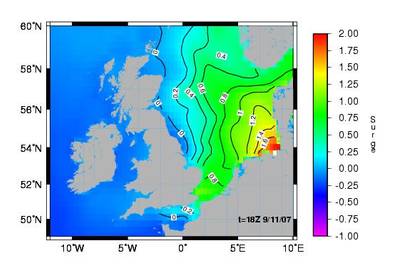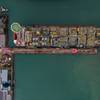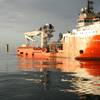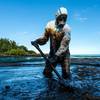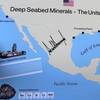Sea Level Rise ‘Worst Case Scenario’
A paper published this week in Environmental Research Letters by NOC scientist Dr. Svetlana Jevrejeva provides new information about the probability of a sea-level rise reaching of 180cm by 2100.
In this study Dr. Jevrejeva and colleagues explore the range of possible sea level rise by 2100 and add new data to the estimates currently available. Previously an upper limit, or ‘worst case scenario’, has not been possible to calculate, but this new study now looks beyond the previous data available to provide a more complete picture. The estimate of 180cm as the upper limit is thought to be a low probability, only a 5% chance, but this worst case scenario sea level rise projection cannot be ruled out, given past climate proxy observations and current model limitations.
With sea levels continuing to rise in the 21st century, the impact assessment, risk management, adaptation strategy and long-term decision making in coastal areas depend on up to date future projections of sea levels.
This work is important step forward, with the latest Intergovernmental Panel on Climate Change (IPCC) assessment report indicating sea level projections spanning a likely range (66% increase) only, which means a 1/3 of future sea level rise may lie outside the stated uncertainty ranges by IPCC.
Coastal engineers, such as those planning improvements to the London Thames barrier, need to look at this new data, since coastal infrastructure must be able to survive worst case situation. These findings will be of great benefit to those involved in research in coastal engineering, coastal planning adaptation and mitigation, glaciology and climatology.
Dr. Jevrejeva commented, “The upper limit of sea level rise is crucial for planning purposes in coastal areas, since infrastructure needs to survive the worst case situation. We hope that this new worst case scenario will assist planners by providing a next step forward since the IPCC AR5 report published last year.”
Professor Ian Wright, Director of Science and Technology at the NOC added, "Sea-level research is a crucial topic in environmental science, and this study provides further insight in predicting the range of sea level rise toward the end of the century."
The study was carried out in conjunction with Aslak Grinsted from Centre for Ice and Climate, Niels Bohr Institute, University of Copenhagen, Copenhagen, Denmark and John C. Moore from State Key Laboratory of Earth Surface Processes and Resource Ecology, College of Global Change and Earth System Science, Beijing Normal University, Beijing, China.



